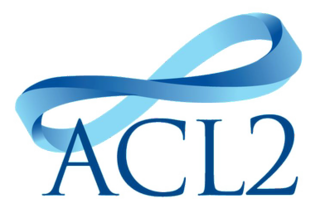System on TPTP is an online interface to several automated theorem proving systems and other automated reasoning tools. It allows users to run the systems either on problems from the latest releases from the TPTP problem library or on user-supplied problems in the TPTP syntax.
Automated theorem proving is a subfield of automated reasoning and mathematical logic dealing with proving mathematical theorems by computer programs. Automated reasoning over mathematical proof was a major impetus for the development of computer science.
Automated reasoning is an area of computer science, cognitive science, and mathematical logic dedicated to understanding different aspects of reasoning. The study of automated reasoning helps produce computer programs that allow computers to reason completely, or nearly completely, automatically. Although automated reasoning is considered a sub-field of artificial intelligence, it also has connections with theoretical computer science, and even philosophy.
The system is maintained by Geoff Sutcliffe at the University of Miami. In November 2010, it featured more than 50 systems, including both theorem provers and model finders. [1] System on TPTP can either run user-selected systems, or pick systems automatically based on problem features, and run them in parallel. [2]

Geoff Sutcliffe is a US-based computer scientist working in the field of automated reasoning. He is of both British and Australian nationality. He was born in the former British colony of Northern Rhodesia , grew up in South Africa, and earned his Ph.D. in Australia. He works at the University of Miami. He is the developer of the Thousands of Problems for Theorem Provers (TPTP) problem library, and of the TPTP language for formal specification of Automated theorem proving problems and solutions. Since 1996 he has been organizing the annual CADE ATP System Competition (CASC), associated with the Conference on Automated Deduction and International Joint Conference on Automated Reasoning. He has been a co-organizer of several Automated reasoning challenges, including The Modal Logic $100 Challenge, The MPTP $100 Challenges, and The SUMO $100 Challenges. Together with Stephan Schulz, Sutcliffe founded and has been organizing the ES* Workshop series, a venue for presentation and publishing of practically oriented Automated Reasoning research.

The University of Miami is a private research university in Coral Gables, Florida. As of 2018, the university enrolls 17,331 students in 12 separate colleges/schools, including the Leonard M. Miller School of Medicine in Miami's Health District, a law school on the main campus, and the Rosenstiel School of Marine and Atmospheric Science focused on the study of oceanography and atmospheric sciences on Virginia Key, with research facilities at the Richmond Facility in southern Miami-Dade County.


